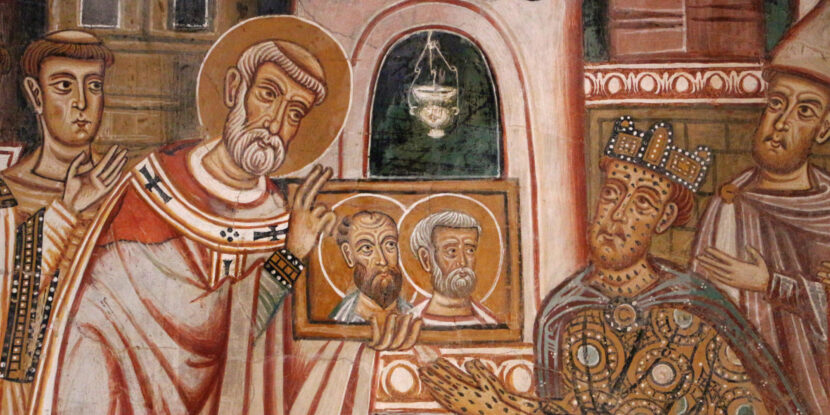While you likely know the Seventh Day of Christmas as New Year’s Eve or, if you are a man of culture, Hogmanay, in some European countries, including Germany and Poland, it is called Silvester, after Pope Saint Sylvester I.
St. Sylvester was Pope from 314 to 335 A.D., during a time when the Catholic, Eastern Orthodox, and Oriental Orthodox Churches were still united, and the Protestant Reformation was more than a thousand years away. His papacy started shortly after the Edict of Milan, which ended the official persecution of Christians in the Roman Empire, ushering in a new period of flourishing for the Early Church.
St. Sylvester is reputed to have converted Emperor Constantine, but his major legacy is the Nicene Creed, a statement of faith almost as foundational to Christianity as the Bible. It states:
We believe in one God, the Father almighty, Maker of heaven and earth,
and of all things visible and invisible.
And in one Lord Jesus Christ, the Son of God, the only-begotten,
begotten of the Father before all ages.
Light of Light, true God of true God, begotten not made,
of one essence with the Father by whom all things were made;
who for us men and for our salvation, came down from heaven,
and was incarnate of the Holy Spirit and the Virgin Mary
and became man.
And He was crucified for us under Pontius Pilate,
and suffered, and was buried.
And the third day He rose again, according to the Scriptures;
and ascended into heaven, and sits at the right hand of the Father;
and He shall come again with glory to judge the living and the dead;
whose Kingdom shall have no end.
And in the Holy Spirit.
Another festive mainstay was a more famous participant than even St. Sylvester at the Council of Nicaea: St. Nicholas, or Santa Claus, then a determined foe of heresy as much as a friend and patron of children.
Many Silvester traditions mirror those of New Year’s Eve, including fireworks to welcome the new year. In Germany, there is a playful tradition of serving jelly donuts, some of which are mischievously filled with mustard instead of jam.
From Poland comes a superstition that advises against cleaning on this day, as it might symbolically sweep away the good luck for the new year. Some may find this tradition a welcome excuse to rest amidst a busy Christmastide!


